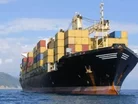[VIDEO] Why Value Chain Innovation in Developing Countries Matters to Multinationals

Most companies today operate within a supply chain network, working with suppliers or distributors to aid in getting a product from its starting point to the end user. Whether your business is large or small, having a successfully integrated value chain is incredibly valuable. But not every business has the same resources to achieve that integrated supply chain, especially in developing countries where government and infrastructure issues can cause significant barriers. In a part of the Stanford Graduate School of Business’s Insights series, Hau E. Lee (Professor of Operations, Information & Technology) offers insight on how those businesses in developing countries can overcome those barriers.
They can be overcome by the right innovations and approaches – innovations that could require you to rethink the way you deliver your products, rethink about the incentives that you give suppliers,” says Lee. “Sometimes those barriers are because suppliers do not trust, or do not have the right information, or have their own constraints. So in helping them by collaborating with them, you overcome their barriers, which in turn unblock your own bottleneck. By going out and having the right information shared, having the right collaborations in place, having the right incentives in place can go a long way.”
By learning to rethink methods and collaborate with other local businesses along their value chain, says Lee, developing businesses can grow their businesses in ways they never thought possible – building from regional operations into businesses capable of expanding and even exporting. As Lee notes, business students and current multinational corporations would also be wise to study and learn from the way that businesses in developing economies are innovating, growing, and building their supply chains.
“We need to leverage the innovations that could come from so-called bottom of the pyramid, because those innovations can also be incorporated even if you’re a big corporation,” says Lee, citing China as a prime example of a country that has developed over the last few decades into a major economic force, and noting that there is similar potential for economic development throughout Africa, Southeast Asia, and South America. “Big corporations often times have to expand. You may one day go to those economies. Those economies could be your market.”
Check out the whole video for more insight on how value chain innovation can help businesses grow no matter where they’re starting out.
[SOURCE: Youtube]



